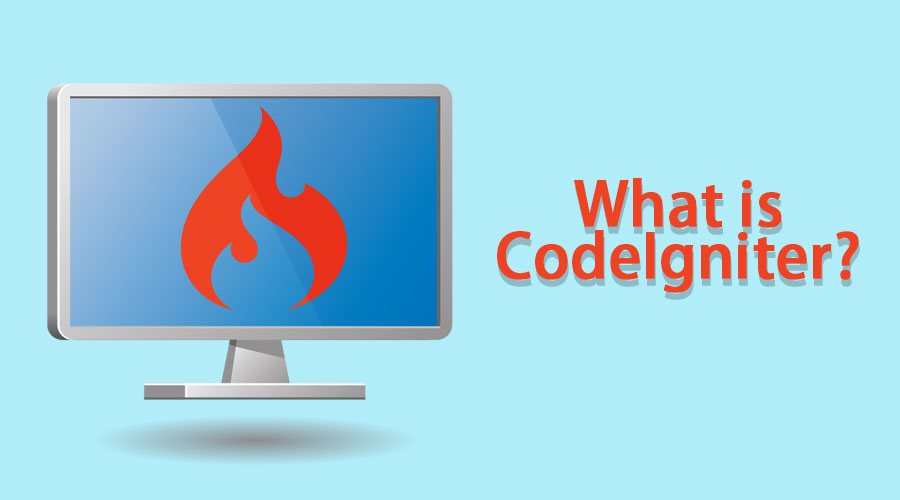Updated July 5, 2023

Introduction To CodeIgniter
CodeIgniter is defined as the open-source software used to rapidly develop the web framework to create dynamic web pages and websites in PHP language. CodeIgniter is one of the best open-source and most rapid development framework software for building dynamic web apps and websites in PHP. This framework is based on loosely coupled systems and uses the widely popular MVC, i.e., Model View Controller framework and development pattern. The controller classes are, in fact, a crucial part of the development phase and pattern; the models and the views are optional entities. The CodeIgniter can also modify the Hierarchical Model View Controller (HMVC), thereby allowing developers to maintain a modular level of grouping of controllers, views, and models arranged explicitly in a subdirectory format. This framework is often noted for its vibrant speed and quick responsiveness compared to other PHP frameworks.
Understanding CodeIgniter
CodeIgniter is a compelling PHP framework with a very small footprint, specially built for developers who need to use a simple and elegant toolkit to create fully featured and functional web applications. This application aims to enable users to develop projects faster and quicker than if they had chosen to write their code from scratch. It is used to do this by providing a rich set of libraries for commonly needed applications and tasks. Doing this is also possible because of the varied usage of the simple interface and the logical structure present to access the set of these libraries.
How Does CodeIgniter Make Working so Easy?
CodeIgniter is lightweight as the core system requires very few libraries, which contrasts with many other web frameworks present today, which require significantly more resources. The other set of libraries is also loaded dynamically at the run time upon giving a particular request, thereby making the base system quite fast and lean.
What Can You Do With CodeIgniter?
CodeIgniter is prevalent in various contexts, primarily due to its MVC feature, which facilitates code separation and promotes cleaner organization. As it works well with little to almost no server requirements, all the PHP 4 and PHP 5-related apps can benefit from CodeIgniter. This is very easy to understand, extend, and get all the tools in one package; therefore, its usage can be seen in creating emails, calendars, uploading, unit testing, validation, sessions, etc. It also includes several other features and formats, such as forms, arrays, file handling, cookies, strings, directories, etc. The CodeIgniter community could also develop its own libraries and helper libraries. It also consists of built-in security tools and features such as unsetting all the global variables irrespective of PHP directives. You can also utilize it for tasks such as abstracting a database and much more.
Working
CodeIgniter enables you to focus creatively on the project by reducing the amount of code needed for a specific task. As it’s free and licensed under MIT licensing, you can use it without any financial concerns and in any way you wish. It is way too fast; therefore, all the output generated is much quicker and more quickly. The effective use of the MVC architecture, which uses the Model and View along with the controller, has always been making things more accessible and more enjoyable. The controller is an essential component that forms the framework’s computing unit, but the model and the view part form the optional parts.
Another feature that makes working with CodeIgniter fun is that it generates cleaner URLs, one of the essential factors. These URLs are also user-friendly and search-engine-friendly. It does not use the standard query string parameter approach but a synonymous approach which is a more efficient way for browsers.
Features of CodeIgniter
The basic features include speed, light-weightedness, cost-effectiveness, use of MVC architecture, application framework, generates cleaner URLs, etc.
Advantages of CodeIgniter
1. Hassle-free and easy migration from the server hosting to dedicated server hosting.
2. Easy to adapt, learn and deploy.
3. Easy customization and handling.
4. We’ve applied new functionality while managing all other customizations.
5. Offers easy management and flexibility with an MVC-based framework.
Skills Required
You need to know PHP and some amount of development knowledge to be able to work with CodeIgniter.
Why Should We Use CodeIgniter?
We should use CodeIgniter because of the rich set of features. Other features include active implementation of records, a superb technique that is easier to remember; it provides easy configurations and customization options, boasts many libraries, and enjoys extensive development and community support.
Scope
The Scope of Codeigniter is too huge if you work your way with PHP language, which is still very popular when discussing website development and web development interfaces.
Need for CodeIgniter
The need arises because of the excellent documentation of the user guide and manual, thereby making it easy for anybody to learn, enabling to incorporate of existing scripts and developing core libraries for the system, extensive user base, and a lightweight mechanism.
Right audience
Developers, analysts, web admins, front-end developers, engineers, testers, consultants, students, and entrepreneurs to the right audience for this course.
Career Benefit
Today, developers widely consider CodeIgniter as the best framework for the PHP language. When you know one framework, it becomes easy for you to work on another. So, learning about this particular framework has advantages and is helpful for future growth.
Conclusion
CodeIgniter has been a great framework, and if you are working on web app development, then you can not afford not to learn this software. I hope you liked our article.
Recommended Article
This has been a guide to What is CodeIgniter. Here we discussed the Concepts, Definitions, Uses, and Types with the Advantage of CodeIgniter. You can also go through our other suggested articles to learn more:

